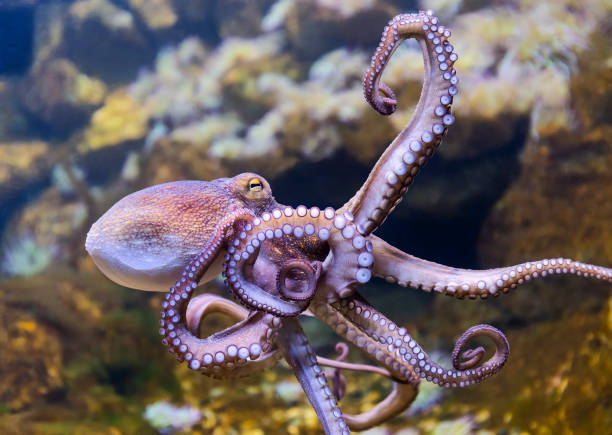Decoding the Mysterious World of Octopuses: Intelligent Ocean Dwellers
Teaser: Dive into the fascinating world of octopuses, intelligent ocean dwellers, as we explore their unique characteristics, behaviors, and roles in the marine ecosystem. Discover how these eight-armed creatures continue to captivate scientists and animal lovers alike.

The Enigma of Octopuses
Octopuses, known for their intelligence and adaptability, have always intrigued scientists and animal enthusiasts. These marine animals, belonging to the cephalopod family, are found in every ocean on Earth, from the warm tropical waters to the freezing depths. Their unique biology and behaviors have made them a popular subject of study, and new discoveries continue to shed light on their fascinating world.
Understanding Octopus Intelligence
One of the defining features of octopuses is their intelligence. They can solve complex puzzles, use tools, and even escape from secure tanks in laboratories. Octopuses have the largest brains of all invertebrates, and they have more than half of their neurons located in their arms, allowing them to taste and feel their environment. Recent research suggests that octopuses even have the ability to learn from observation, a trait typically associated with higher mammals.
Octopuses in the Marine Ecosystem
Octopuses play a crucial role in the marine ecosystem. They are both predators and prey, helping to maintain balance in the food chain. They feed on a variety of animals, including crustaceans, mollusks, and fish, and they are preyed upon by larger marine animals like sharks, seals, and dolphins. Some species of octopuses also have the unique ability to change their skin color and texture, a skill they use for both hunting and avoiding predators.
Unveiling the Octopus Market
Octopuses also hold significant economic value. They are a popular choice for home aquariums, but their care requires specialized knowledge and equipment due to their specific habitat needs and intelligence. The cost of keeping an octopus can range from $100 to $1000, depending on the species and the setup required. Octopuses are also commercially fished for food in many parts of the world. The global octopus market was valued at $624 million in 2020 and is expected to grow in the coming years.
The Future of Octopus Research
In the realm of scientific research, octopuses are emerging as a new model organism, providing insights not only into cephalopod biology but also into broader questions about evolution and cognition. However, there are concerns about the welfare of these intelligent creatures in laboratory settings, leading to calls for stricter regulations and ethical guidelines. As we continue to unravel the mysteries of these fascinating creatures, our understanding of the animal kingdom and our place within it continues to evolve.
In conclusion, octopuses, with their intelligence, adaptability, and pivotal role in the marine ecosystem, offer a captivating window into the mysteries of our oceans. As we deepen our understanding of these intriguing creatures, we not only gain insights into the complexity of life beneath the waves but also shed light on broader questions about animal intelligence and the interconnectedness of all life on Earth.




